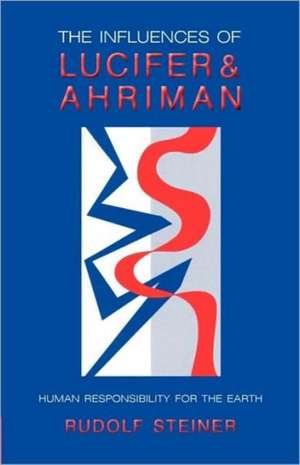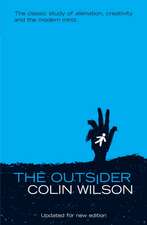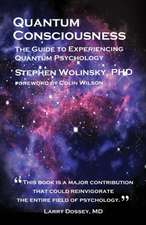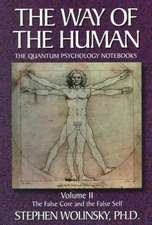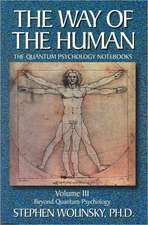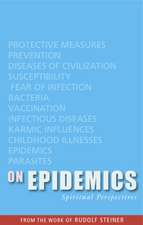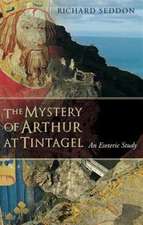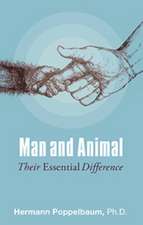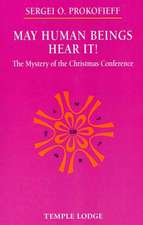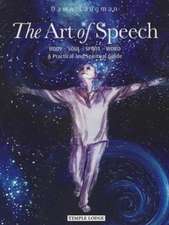The Influences of Lucifer and Ahriman: An Introduction to the Spiritual Processes in Human Life and in the Cosmos (Cw 9)
Autor Rudolf Steiner Traducere de D.S. OSMONDen Limba Engleză Paperback – 5 mar 2015
Keep in mind, however, that these two powers do not work separately; rather, they are working increasingly together. Our task as human beings is to hold them in balance, continually permeating one with the other. Steiner tells us that Lucifer and Ahriman must be regarded as two scales of a balance, and it is we who must hold the beam in equipoise. How can we train ourselves to do this? By permeating what takes ahrimanic form within us with a strongly luciferic element. To accomplish this task we need a new, more conscious inner life."
Preț: 86.25 lei
Nou
Puncte Express: 129
Preț estimativ în valută:
16.50€ • 17.23$ • 13.66£
16.50€ • 17.23$ • 13.66£
Carte disponibilă
Livrare economică 15-29 martie
Livrare express 01-07 martie pentru 28.50 lei
Preluare comenzi: 021 569.72.76
Specificații
ISBN-13: 9780880103756
ISBN-10: 0880103752
Pagini: 96
Ilustrații: black & white illustrations
Dimensiuni: 140 x 216 x 6 mm
Greutate: 0.12 kg
Ediția:Revised
Editura: Steiner Books
ISBN-10: 0880103752
Pagini: 96
Ilustrații: black & white illustrations
Dimensiuni: 140 x 216 x 6 mm
Greutate: 0.12 kg
Ediția:Revised
Editura: Steiner Books
Notă biografică
Rudolf Steiner (1861-1925) was born in the small village of Kraljevec, Austro-Hungarian Empire (now in Croatia), where he grew up. As a young man, he lived in Weimar and Berlin, where he became a well-published scientific, literary, and philosophical scholar, known especially for his work with Goethe's scientific writings. At the beginning of the twentieth century, he began to develop his early philosophical principles into an approach to systematic research into psychological and spiritual phenomena. Formally beginning his spiritual teaching career under the auspices of the Theosophical Society, Steiner came to use the term Anthroposophy (and spiritual science) for his philosophy, spiritual research, and findings. The influence of Steiner's multifaceted genius has led to innovative and holistic approaches in medicine, various therapies, philosophy, religious renewal, Waldorf education, education for special needs, threefold economics, biodynamic agriculture, Goethean science, architecture, and the arts of drama, speech, and eurythmy. In 1924, Rudolf Steiner founded the General Anthroposophical Society, which today has branches throughout the world. He died in Dornach, Switzerland.
